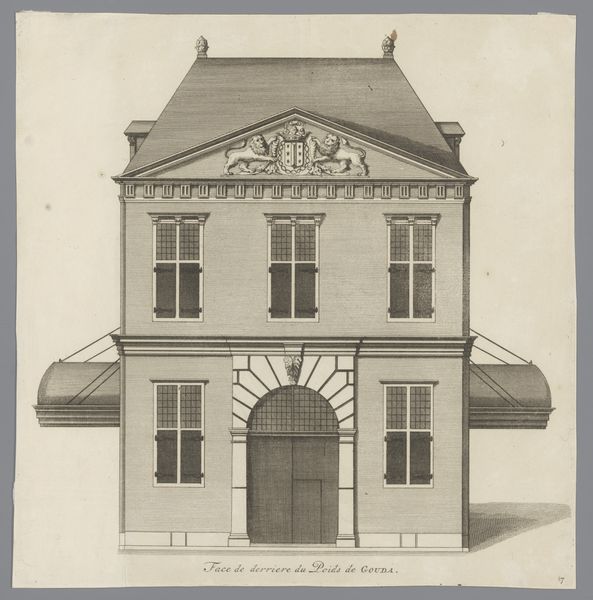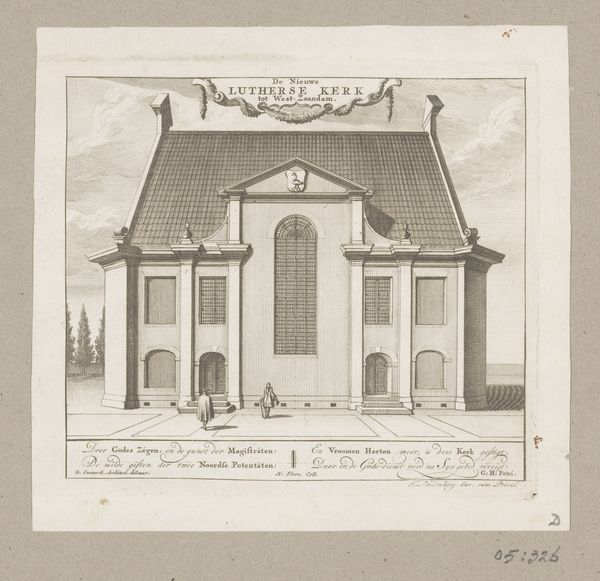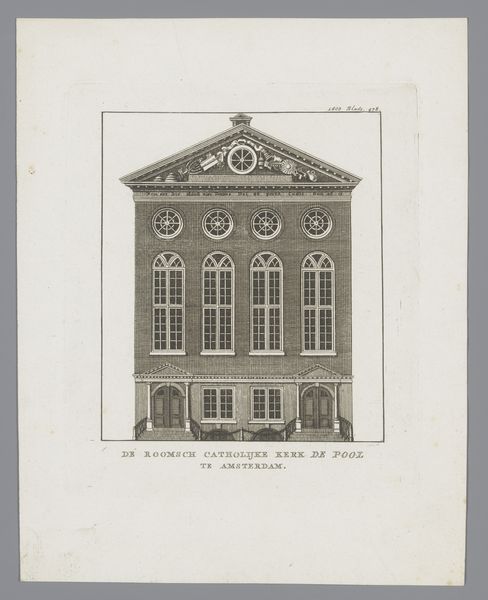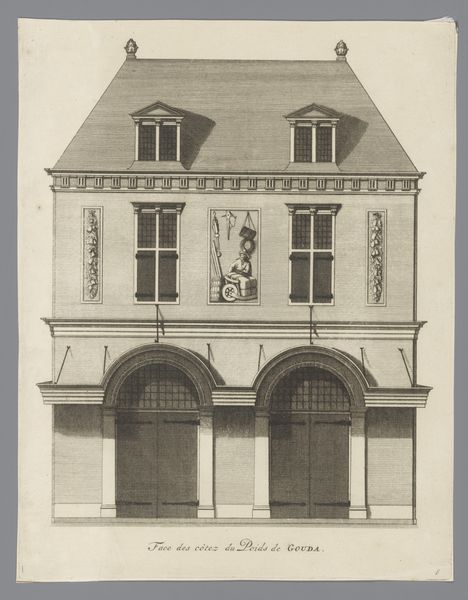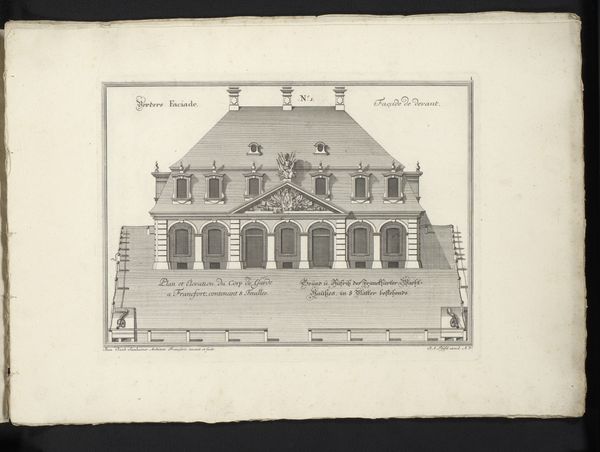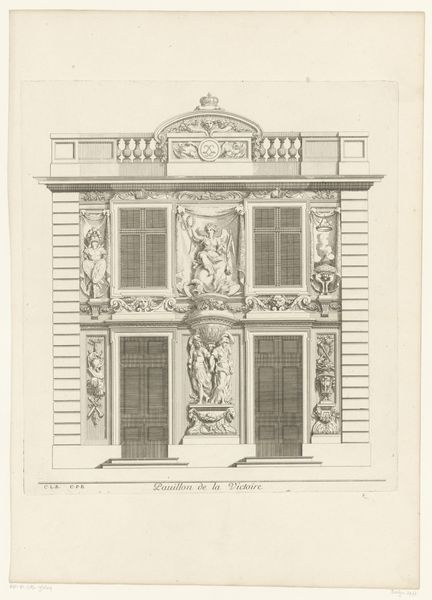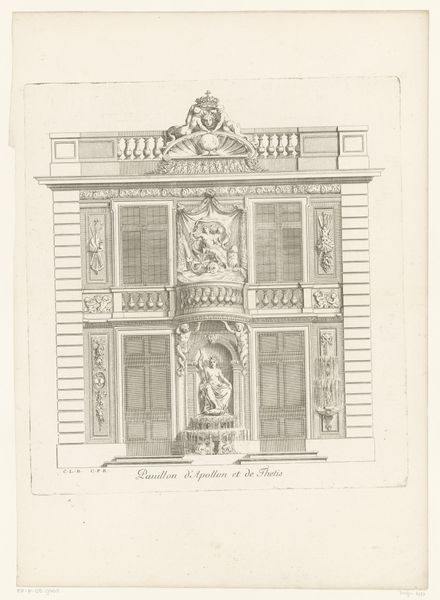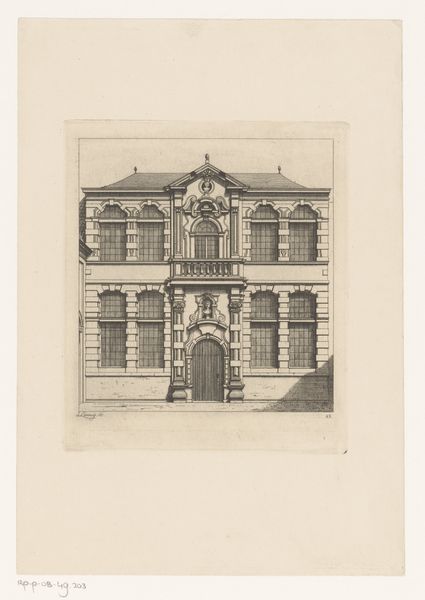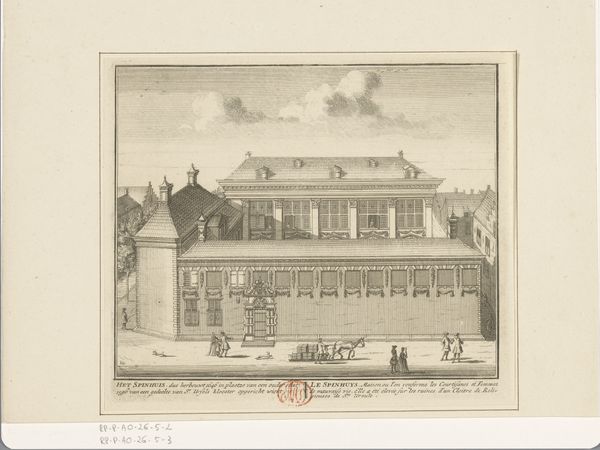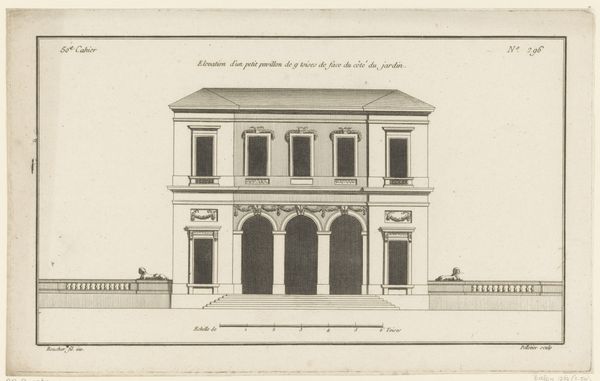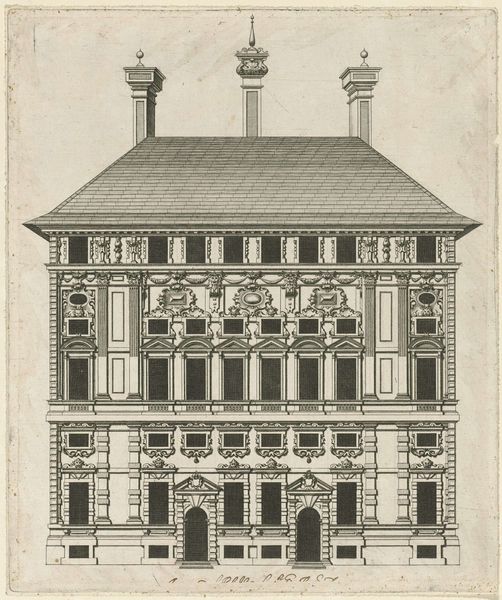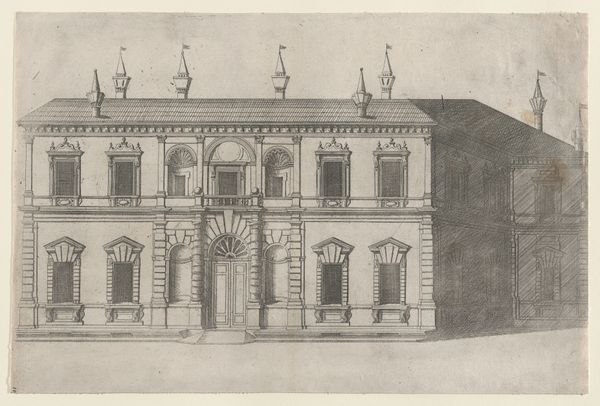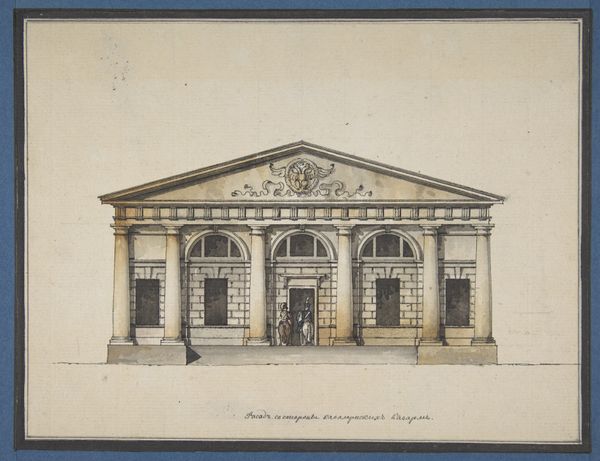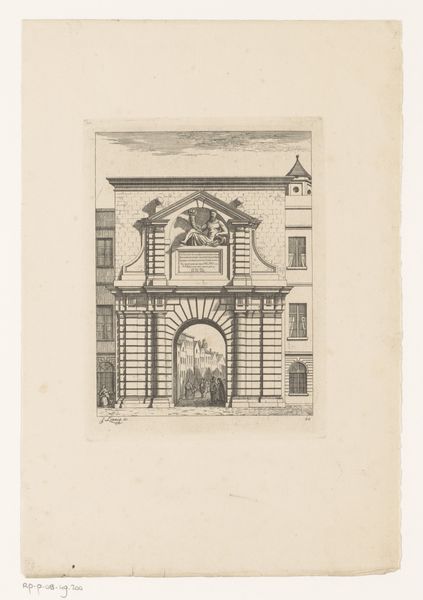
drawing, print, engraving, architecture
#
drawing
#
baroque
# print
#
line
#
paper medium
#
engraving
#
architecture
Dimensions: height 256 mm, width 250 mm
Copyright: Rijks Museum: Open Domain
This print of the Weigh House in Gouda was made by an anonymous artist, its date unknown. Weigh houses emerged in the Netherlands as market towns grew and needed spaces to regulate trade, and this print illustrates how they became important civic symbols. Weigh houses enforced standardized weights and measures, and collected taxes, thus embodying civic power. The Gouda Weigh House is depicted here as a solid, symmetrical building with classical details that evoke harmony and order. Above the entrance, we see scales being used, showing the building's purpose, while coats-of-arms adorn the facade, representing the city's authority. The print's existence points to a growing interest in public architecture and urban planning in the Netherlands. Prints like these circulated among merchants, officials, and architects. They helped to codify and spread ideas about civic identity, economic regulation, and the role of architecture in shaping public life. By studying prints like these, alongside municipal records, architectural treatises, and economic histories, we can better understand the relationship between art, commerce, and governance.
Comments
No comments
Be the first to comment and join the conversation on the ultimate creative platform.
